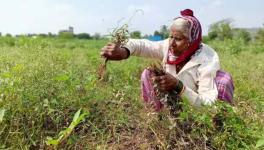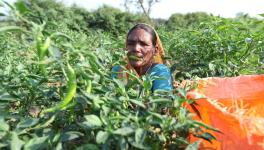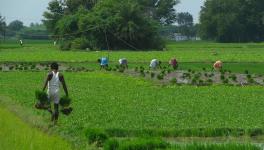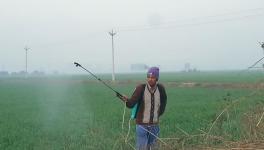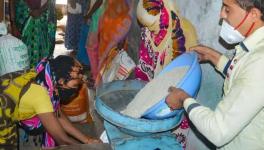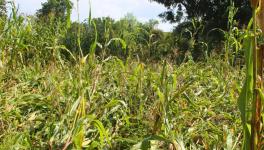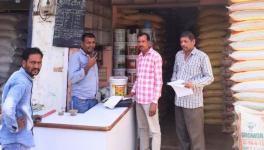PMFBY: 40% Claims for Kharif Season Unpaid

About 40% of the claims, totalling Rs. 12, 867 crore, under the Centre’s Pradhan Mantri Fasal Bima Yojana (PMFBY) scheme for the Kharif season which ended in December 2018 remains unpaid by the insurance companies as of May 10 this year, says a right to information (RTI) response from the Ministry of Agriculture and Farmers’ Welfare.
According to data obtained by The Wire through RTI requests, the pending insurance claims worth Rs 5,171 crore which had been certified by the state governments have not been sanctioned by the insurance companies. Under the PMFBY guidelines, the dues were supposed to be paid by February this year.
The PMFBY guidelines stipulate that the claims should be settled within two months of harvest and within 21 days of receipt of yield data by the companies from the state governments. Kharif crops or monsoon crops are sown during the southwest monsoon season. This crop season starts from around the end of May to early June. The harvesting is done after the monsoon rains i.e. around the beginning of October. Rice, maize, pulses including moong dal and millets are the main Kharif crops.
Also read: Fasal Bima Yojana: Farmers’ Distress is Source of Profit for Companies
Of this Rs 5,171 crore dues, maximum amount is owed to Maharashtra which is one of the worst drought-hit states. Of total estimated claims of Rs 3,893 crore under this scheme, Rs 1,416 crore is pending in the state.
The delay in the payments are at a time when a large part of the country is going through severe drought. As about 65% of the crop area is rain-fed, the deficit in rainfall hugely affected the crops. In 2018, the monsoon was below average and a deficit of 9.4% from the long term average was recorded.
Following this, seven states- Maharashtra, Karnataka, Jharkhand, Gujarat, Rajasthan, Andhra Pradesh and Odisha- have declared themselves as drought-hit. In January this year, the Lok Sabha was informed that 252 districts across the country- a third of the total districts in the country - received deficit rainfall from June to September 2018.
In the case of Karnataka, where 156 talukas of total 176 have been declared drought-hit, over 95% claims remain pending. Though the state has certified a total claim of Rs 679 crore, only Rs 28 crore has been sanctioned. In Madhya Pradesh, where 18 out of total 52 districts have been declared as drought-hit, the farmers have not been paid a single rupee though there is an estimated claim of Rs 656 crore. Apart from Madhya Pradesh, farmers from Jharkhand and Telangana have also not been paid a single rupee, says the RTI data.
Also read: #DroughtDistress: Possible Monsoon Delay in Maharashtra, Says IMD
As far as the status of PMFBY scheme in the Northeastern states is concerned, only Rs 8 crore against the total allocation of Rs 1,400 crore had been spent during last year. Four Northeastern states- Arunachal Pradesh, Nagaland, Manipur and Mizoram- are not even covered under the scheme.
“Although the Northeastern states have only 2.5% of the country’s cultivable area, 10% of the budget for PMFBY and RWBCIS [Restructured Weather Based Crop Insurance Scheme] is earmarked for them. But all the funds are lapsed,” a senior official administering the scheme was quoted as saying.
While, according to the available data, the PMFBY scheme itself is facing challenges in its implementation. The PMFBY data says that there was a sharp decline in the number of farmers who have enrolled in the scheme from Kharif season 2016 to Kharif 2017. For Kharif 2016, as many as 4,02,58,737 farmers had enrolled. While for Kharif 2017, a total of only 3,47,76,055 farmers had enrolled which is about 14% less than the previous season.
Also read: Pradhan Mantri Fasal Bima Yojana: Assessment Report Shows ‘Super Normal Profits’ by Insurance Firms
Get the latest reports & analysis with people's perspective on Protests, movements & deep analytical videos, discussions of the current affairs in your Telegram app. Subscribe to NewsClick's Telegram channel & get Real-Time updates on stories, as they get published on our website.











